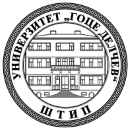THE COMPOSITION OF THE MAIN ELECTION BODIES IN THE COUNTRIES OF THE FORMER SFRY

Abstract
Elections have always been perceived as an essential component of democracy. Sine qua non for any representative democracy is the election process to be fair and competitive. The key institutions for fostering faith in democratically conducted elections are the election bodies. In comparative science that deals with the study of electoral systems, there are different methodological approaches and different criteria through which attempts are made to classify the bodies that manage the election process. Regardless of the fact that many authors distinguish between different forms of election bodies, the main distinction still lies in distinguishing between governmental and independent bodies for conducting elections. Hence, the aim of this paper is to consider the question of how the Election Commission is conceived, as the most important election body, in the legislation of the countries of the former Yugoslavia. It should be emphasized that such a comparative analysis is considered quite plausible, since these countries that in the early 90s of the XX century, after the dissolution of the former SFRY, were transformed from the former political monism into countries with political pluralism. The Pluralism in these countries was unthinkable without democratically conducted elections. During their holding, the election bodies, including the Election Commission, played a huge role in ensuring a quality flow of the same. For that purpose, this paper will first review the theoretical literature that aims to answer the questions of how to analyze the bodies that manage the election process and what are their constituent elements crucial to evaluating the quality of the electoral administration itself. Then will be make a comparative overview of the similarities and differences in the conception of the EC as part of the election bodies in the countries that arose on the territory of the former Yugoslavia. A generally accepted fact in electoral science is that, among the new democracies, which undoubtedly include the countries of the former socialist Yugoslavia, most popular were more or less independent electoral bodies in the form of Election Commissions, as will be evidenced by the analysis of the character of the election bodies in the countries that emerged after the dissolution of the former SFRY – Slovenia, Croatia, Serbia, Montenegro, BiH and R Macedonia. The analysis done here will show that, regardless of the fact that all countries from the former SFRY follow the most popular model for conducting elections, the so-called model of more or less independent Election Commission, the process is not completely identical because all analysed models are derived from the political specifics and characteristics of the respective countries and their specific legislative practice.
Keywords: Election Commission, Election Bodies, Election Legislation, former SFRY, independent bodies;
